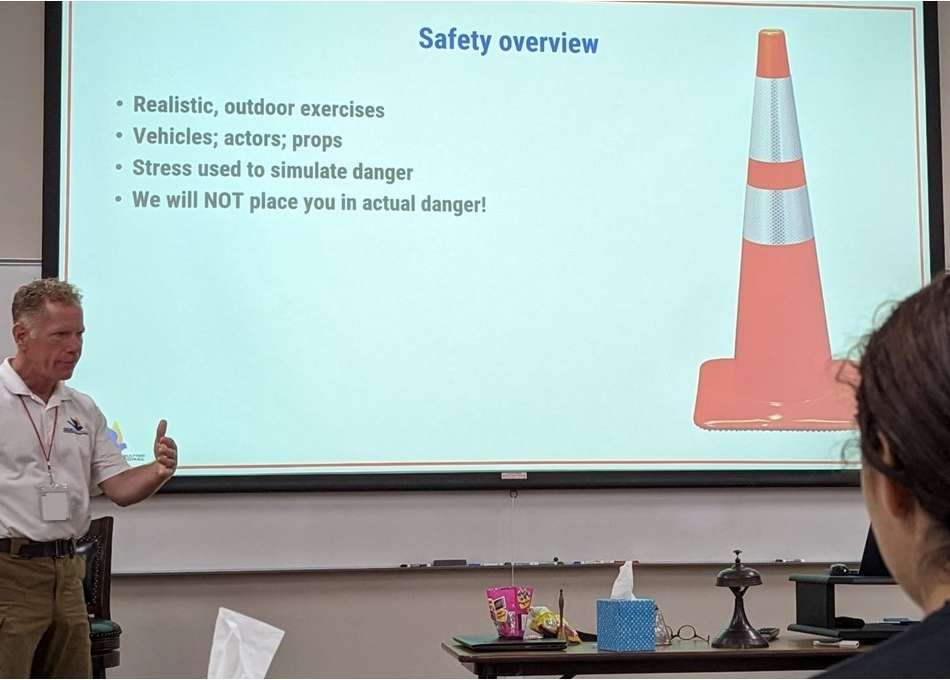
Overview
Ministry can be stressful. Cross-cultural ministry will be more stressful. Studies show that the stress associated with cross-cultural entry and transition, ministry ambiguity, and conflict are major contributors to failure in cross-cultural ministry. Thatʼs the bad news. The good news is that the CIT program is designed to prepare you to survive and succeed, whether you are moving to a new country, returning “home” after years overseas, or looking for support with any other cross-cultural transition.
Training Philosophy
CIT values a holistic approach to the learning process. While the principle and skill aspects of cross-cultural preparation can be segmented into bite-sized subject matter, they are lived out in an integrated whole. Therefore, our programming attempts to integrate our values throughout the participants’ learning experience with us. We believe in community, age-appropriate learning, and spiritual formation.
“As mature Christians, we think we know the Bible (and ourselves) well enough to become cross cultural workers. But in the relative isolation of the North Carolina mountains, we found out how much we don’t know and how God-sized the work is. We lived in a community something like the church in Acts and built and tested relationships like never before. We learned to use the Bible to question and answer what we heard taught… I can’t imagine what a mess I’d have made of things if I had gone to the field without CIT.”
Community
Environment:
- Character
- Vulnerability/Transparency
- Body Life
- Family Friendly
- Forgiveness
- Trust
- Cultural Understanding
- Contextualization
- Small Groups
- History Giving
- On-Campus Living
- Campus Mayor Responsibilities
Age-Appropriate Learning:
- Age-Appropriate Learning Principles
- Sensitive to diverse personalities & learning styles
- Holistic Philosophy
- Cognitive
- Affective
- Volitional
- Psychomotor
- Reflective
- Social
- Family Sensitive
- Facilitator Style vs. Professor Style
Spiritual
Formation:
- Identity
- Self-Righteousness / Righteousness of God
- Self-Reliance/Reliance on God
- Self-Satisfaction/Satisfaction in God
- Humility/Servanthood
- Incarnational
- Counter Ethnocentrism
Residential Courses:

Pre-Field Training: Equipping for Cross-Cultural Life and Ministry
Cross-cultural living creates unique challenges for individuals, families, and especially for ministry.
Cross-cultural living and ministry creates unique stresses on the individual cross-cultural worker and family in a variety of ways. We will address those issues and seek to prepare you to successfully navigate those critical areas. We will address the practical and theoretical tools needed for ministry in a cross-cultural context
In this course you will learn, among many other things, about yourself and the complexity of how to enter a new culture. Although you will gain new tools, the focus is on the skill of the Master carpenter. Success in cross-cultural ministry is not what you can do, but what He can do through you.
We will:
- Explore the unique stresses of moving overseas and provide tools to help in the transition.
- Identify how expectations play a role in cross-cultural adjustment.
- Identify the special stresses affecting marriages and ways to maintain and improve a healthy marriage.
- Discover the unique needs of Third Culture Kids (TCK’s) and learn how to help them develop into normal, healthy, productive adults.
- Analyze the special needs of single workers and find ways to help singles and married couples relate well together.
- Identify and discuss the strengths and weaknesses of the various educational options for families and their children.
- Clarify the unique roles and needs of both men and women on the field with special emphasis on helping women find fulfillment and a sense of purpose.
- Explore the phenomenon of culture shock, its causes, its effects on relationships, and ways to cope with the effects.
- Introduce the basic theoretical perspectives and research tools for cross-cultural study.
- Learn how to apply principles and data of social organization to formulating mission strategy.
Your tuition for the equipping program includes access to our CIT 2.0 courses for workers arriving in their new country of service. Learn cultural sensitivities, customs, practical survival skills, and joining a team. These courses are designed to use just-in-time learning to help you apply all that you learned while attending the equipping course. Equip yourself to make a lasting impact and build meaningful connections in your field.

Language Learning Accelerator Course
Sharing the Gospel cross-culturally in a second language is no easy task.
In this course you will learn a wide variety of practical skills for successful language learning including helping you understand your abilities and developing a practical strategy to be an effective communicator of the most important message.
This course introduces a wide variety of skills for successful language learning. Participants will learn principles of effective language learning, practice language learning activities, and train the ears to hear and the mouth to reproduce sounds in other languages. They will learn to become pro-active in language learning and acquire resources to help master language learning. Participants will practice language learning methods with native speakers and receive planning guidelines on how best to approach language learning when on the field.
Your tuition for the Language Learning Accelerator program includes access to our CIT 2.0 LLA courses for workers learning a new language. This course is designed to help you apply what you learned during your time at CIT’s LLA program.

Debrief Retreat
As a cross- cultural worker, you belong to a small group of people for whom change is an even larger part of their lives than it is for others.
You may be coming on Home Ministry, or you may be returning to retire, or to transition into a new phase of life and ministry here. Whatever the reason, many things will have changed: the people and places you knew, the customs you remember, the types of cereal you bought, the songs they sang in your church, and even you!
The debrief week is designed to give you time and opportunity to share your life and ministry and to think through the issues and challenges, but also the joys of change and transition.

Field Security Seminar
- Think proactively about security risks
- Exercise leadership in field emergencies
- Develop situational and environmental awareness
- Understand best practices in avoiding a security incident
- Identify and counteract basic and advanced surveillance
- Manage and survive violent encounters and active shooters
- Manage interrogation
- Manage carjackings
- Survive a hostage event
- Avoid becoming the target of an attack
- Manage group travel security
- Manage checkpoints
- Survive vehicle ambushes
- Understand the dynamics of landmines and IEDs
If you are interested in attending a Field Security Seminar, please register directly with CIT. Contact us at citmail@cit-online.org if you have any questions.

Engage Retreat (5- Day Spiritual Retreat)








